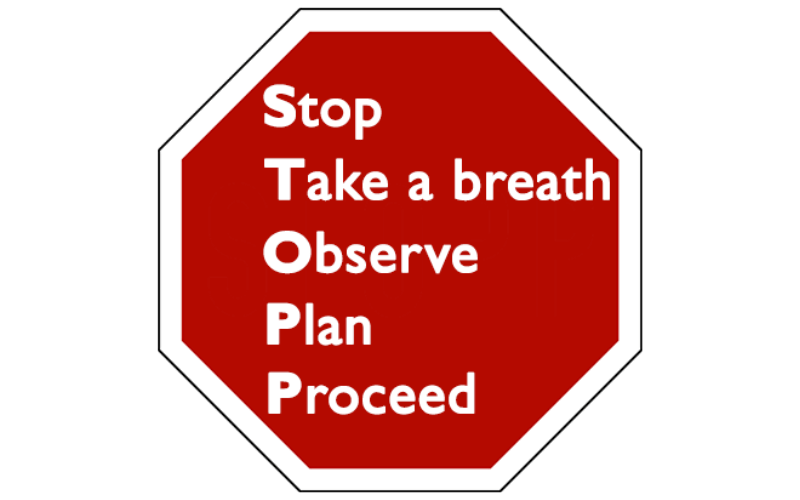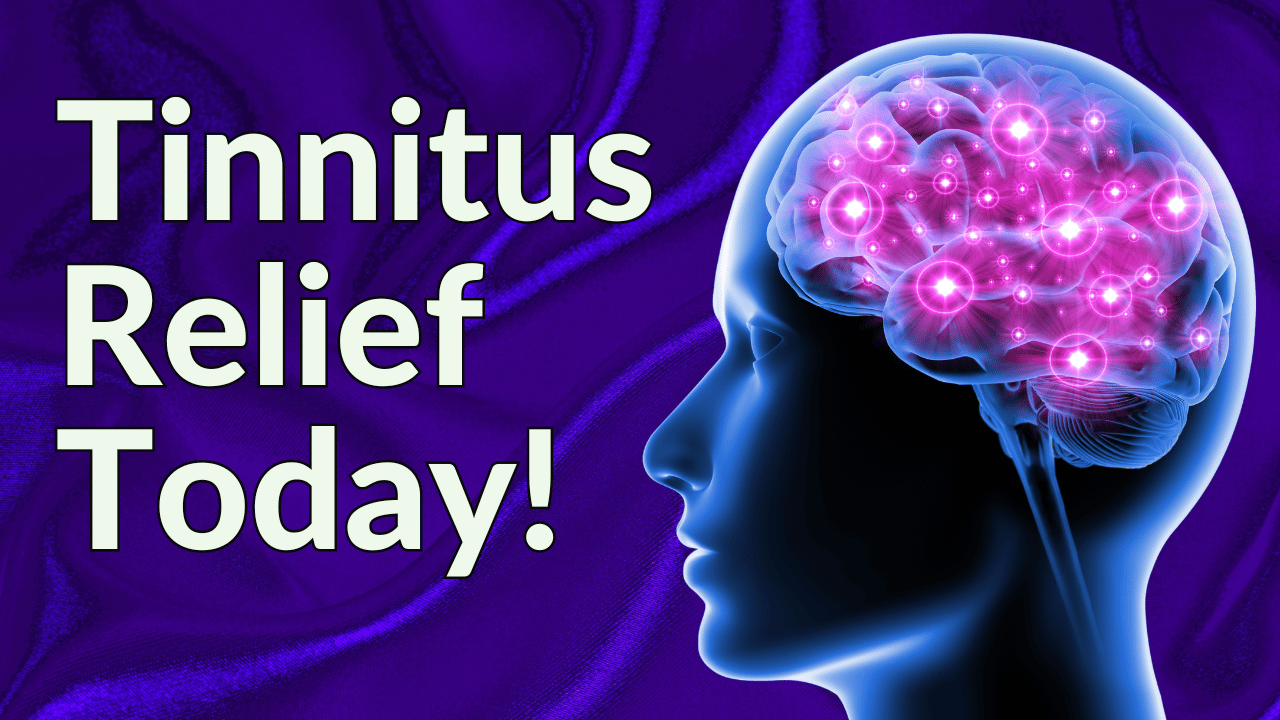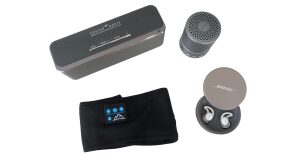Did you know practicing positive thoughts and changing your mindset can improve tinnitus and overall well-being? This might sound strange at first, especially since there’s no cure for tinnitus just yet, however, ongoing research suggests tinnitus symptoms are tied to stress and anxiety. This means that managing stress levels and addressing anxiety may potentially have an impact on tinnitus symptoms by promoting neuroplasticity.
Neuroplasticity is the brain’s special ability to adapt or change throughout life in response to internal or external factors, such as a stroke or tinnitus. With practice, the brain has the potential to retrain itself to ignore the tinnitus sounds. Here are eight simple methods you can use to promote neuroplasticity and potentially change your behaviors and reactions to tinnitus:
Gratitude Journaling
Gratitude journaling is a simple and inexpensive approach to reducing stress and anxiety in anyone’s life. It is especially useful for people with tinnitus as the phantom sounds of tinnitus can easily become a focal point of daily life leading to stress and anxiety for those with tinnitus. These feelings, while entirely valid, can overshadow the positives about life, and make things appear much worse than they actually are.
"Treble Health helped me turn down the sound of my tinnitus. Now I can breathe, and get on with my life!"

"Treble Health helped me turn down the sound of my tinnitus. Now I can breathe, and get on with my life!"
– Elisa
Book a free consultation to learn which Treble Health solution is right for you. Join Elisa and thousands more who have found lasting tinnitus relief.
First, consider what you’re most grateful for at the moment. This is what you will use to fill your journal and help put things into perspective. Make a list of things, both large and small, that you appreciate throughout your day. It doesn’t have to be profound, it just has to be positive. For example, “I’m grateful for the great weather today, and the warm sunshine”, or “I’m grateful I was able to have breakfast with my children this morning before they left for school”.

Practicing gratitude journaling will help to change your outlook, and promote positive thoughts. Despite the frustrations that can accompany tinnitus, there’s still a lot to be grateful for. Focusing on the positive helps the brain get out of that negative cycle of thinking, and more importantly, it takes the spotlight off the problematic tinnitus. This is a necessary step in the journey towards habituation, and learning to accept the tinnitus as something neutral, and not bothersome.
Group Counseling Or Coaching
Living with tinnitus can feel isolating, especially without the right guidance and support to navigate the negative psychological symptoms. Group counseling or coaching can have a huge impact on one’s outlook on tinnitus. It’s also a great way to hear the stories of other patients with tinnitus or share your own.

Opening up to strangers about your tinnitus experience can be intimidating. Start by being an active listener to get an idea of how the group communicates and what to expect from the meetings/sessions. Newcomers aren’t expected to open up right away, and it can take time to get comfortable enough with a new group to open up about your own experience with tinnitus. It may take some more time to even understand your own feelings towards tinnitus — group therapy can help with navigating these feelings and provide you with new ways to define and acknowledge your experience.
There’s no one-size-fits-all treatment for tinnitus, but it can be very reassuring to hear other people’s success stories. Find a tinnitus support group near you with the help of a local audiologist, or through the American Tinnitus Association. Treble Health also offers group counseling twice a month as a part of our Tinnitus 180º Program, for patients seeking answers just like you.
Filing It
Manage the psychological symptoms of your tinnitus by filing it. Here’s how it works: Imagine you have a filing cabinet in your mind. This cabinet holds all your negative thoughts and emotions. Whenever you have a negative or anxious thought, just file it away for another time. This way, it won’t affect you in the moment, and you can just address it later.
So, if your brain says “This tinnitus is driving me nuts, I can’t enjoy this TV show”, capture that thought, and imagine filing it away in the mental filing cabinet. Then, go back to watching the movie or TV show, and breathe through it. The more you’re able to put this filing method into practice, the more useful it will become. It might not be the magic bullet many tinnitus patients seek, but it can help neutralize those negative thoughts over time.
STOPP Method
The STOPP method is a great technique for managing tinnitus and hyperacusis. During a tinnitus fluctuation, you may notice you’re a bit more on edge or agitated than normal because the tinnitus is louder. Get ready to STOPP.

- S stands for “Stop”. Stop moving if you notice you’re anxious, or a bit on edge. Your shoulders might be tense, and the negative thoughts may be consuming you. Be mindful.
- T stands for “Take a deep breath”. Relax your stomach, inhale deeply through your nose, and exhale through your mouth. Focus on stabilizing your breathing.
- O stands for “Observe”. Take a moment to reflect on or observe your thoughts. Recognize that you’re just having a tough moment and you’re just going through something. Allow yourself to observe them without judgment.
- P stands for “Pull back, put things into perspective”. You know you’re having a hard time, but you can also highlight the other parts of your life that are enjoyable. Another way to approach this is by taking a step back and giving yourself the same advice you’d give to a friend or family member.
- P stands for “Process it”. Practice acceptance of the situation, recognizing that you don’t have to fix everything now, or be totally in control of a situation. Give yourself grace, and simply do whatever works for you.
5-4-3-2-1 Method
Use the 5-4-3-2-1 method to reduce any feelings of anxiety that come with your tinnitus symptoms. This method comes in handy whenever other sounds become overwhelming. Using other sensory stimulation can distract the brain from the symptoms and the ringing in the ears. Let’s walk through this technique:
- 5: Use your sense of vision to spot FIVE things around you. What do you notice about them?
- 4: Use your sense of touch to feel FOUR things near you (actually touch them). Are they soft? Hard? Hot? Cold?
- 3: Use your sense of hearing to listen for THREE things around you. It could be traffic, birds, the air conditioning, anything.
- 2: Use your sense of smell to identify different TWO scents and odors around you, like perfume, or flowers.
- 1: Use your sense of taste to enjoy ONE sweet treat. Some patients use chocolate, focusing on how it tastes, smells, and feels on their tongue. Consider this a reward for overcoming the negative feelings! You can also focus on how your mouth currently tastes, whether that’s minty fresh, or like lunch.
Mindfulness-Based Stress Reduction
Mindfulness-based stress reduction is a popular strategy used to reduce stress by focusing on being present in the moment and embracing tinnitus instead of fighting it. Mindfulness can take the form of meditation, exercise, yoga, and breathing exercises to name a few mindful activities. Being aware and observant of your thoughts, and being present in the moment and environment can help to reduce stress and anxiety. Practicing mindfulness can also help with concentration and improve sleep quality.

Mindfulness can involve taking a moment to feel present and grounded by thinking about how the chair feels underneath you, or how the wind feels against your skin. It can look like paying closer attention to the blooming flowers, or how cozy your socks feel on your feet. Focusing on these smaller details of everyday life can help you feel more part of the moment instead of feeling out of control due to tinnitus symptoms. You can also use mindfulness to help with your gratitude journaling to give yourself some often well-needed perspective!
Make A Winlist
People with chronic tinnitus often experience fluctuations in their symptoms, and when these flare-ups happen, it’s easy to lose sight of all the progress that has been made. During the moments you experience a break from your anxiety and tinnitus, make a list of all your wins. This doesn’t have to mean a complete break from the ringing in your ears. It can mean you fell asleep a bit easier this week or had a chance to enjoy a social outing without stress.
Keep a list of these somewhere you can actually see them and review them easily. This could be on your notes app, or sticky notes among your belongings. When you’re having a flare-up, take a look at them for a reminder of the progress you’re actually making. It’s much easier to visualize progress this way than recall them from memory during stressful moments. The longer your winlist gets, the more clearly it will represent the success of your tinnitus treatment and is a sign that neuroplasticity is taking place.
Self-Care
Finally, practice self-care. Self-care is so important, whether you have tinnitus or not. Self-care looks different for everyone, but most people tend to enjoy massages as a form of self-care. A professional massage can do wonders for your mental health, but self-massaging is known to be just as beneficial when directed close to the auditory vestibular nerve, also known as the vestibulocochlear nerve, near the neck, around the face, and into the jaw. Targeting this general area with the hands or a massaging device can alleviate stress and tension in the area, which is especially beneficial for people with somatic tinnitus.

Stretching is another underrated form of self-care that can relieve mind and body stress. Combine daily stretches, or practicing yoga, with deep breathing exercises for stress relief. Exercise is necessary for good mental and physical health, whether in the form of a formal workout, a walk, or a casual game of basketball.
Eating a well-balanced diet is needed for overall health and well-being. There’s no real evidence that certain foods cause or trigger tinnitus, but we do know that overconsumption of salt, alcohol, caffeine, and other substances can increase blood pressure, which could have a temporary effect on tinnitus symptoms.
Treat Your Tinnitus With The Treble Health Team
Adding these eight simple methods to your tinnitus toolkit can help you navigate the ups and downs of tinnitus and hyperacusis. At Treble Health, we understand the complex connection between mental health and tinnitus. Our team of audiologists is highly skilled in addressing the unique challenges that come with managing tinnitus alongside mental health concerns. By scheduling a complimentary telehealth consultation, you’re taking an important step towards understanding and improving your well-being.
During this 20-minute Zoom session, our experienced audiologists will listen to your story, answer any questions you may have, and provide personalized recommendations to help alleviate your tinnitus. We believe in a holistic approach, addressing both the auditory challenges and the impact on mental health, to bring you comprehensive relief. Don’t let tinnitus control your life any longer; click here to book your free consultation and start your journey to better health and peace of mind.
Next Step: Book Free Consultation
- 75% of patients reduced their tinnitus within three months after following our recommendations.
- "I feel like Treble Health literally gave me my life back." - Randy S. (verified customer)
- Join thousands of people who have reduced their tinnitus after scheduling a free consultation.












